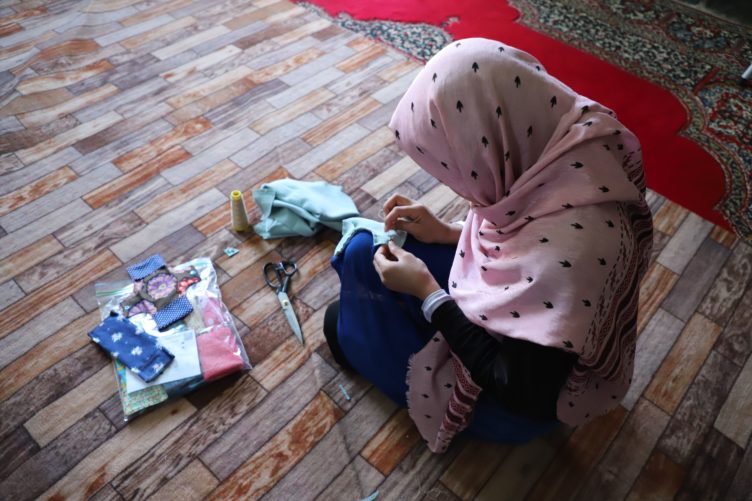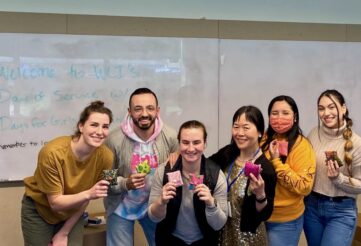The Fight Against Female Genital Cutting

Around the world, women and girls face constant threats to their health, safety and dignity.
Days for Girls specializes in mitigating menstruation-related harm (like period poverty), but we stand firmly against all types of gender-based violence. This includes Female Genital Mutilation/Cutting (FGM/C): a painful, destructive process that cuts and removes parts of the female genitalia for non-medical reasons – and has impacted more than 200 million women and girls alive today.
A Cultural Tradition With Devastating Effects
FGM/C is a cultural custom practiced in 30 countries around the world. Similar to taboo-driven menstrual practices like chaupadi, many cultures consider “the cut” as a rite of passage for girls transitioning into womanhood. It is intimately connected with perceptions of female virginity/purity, a patriarchal need to control female sexuality, and the entrenched belief that cutting preserves the cleanliness and fertility of brides-to-be.
The consequences can be devastating.
Girls who undergo the procedure often suffer with severe pain, infections and hemorrhaging (that can be fatal) – not to mention psychological trauma that impacts them for years to come. In the long term, FGM/C can also lead to menstrual disorders, sexual dysfunction/pain, childbirth complications, scarring, anemia and an increased risk of HIV.
The World Health Organization has condemned the practice as a brutal human rights violation and an extreme form of child abuse. Yet an estimated 3 million girls around the globe are still at-risk for FCM/C every single year.
The STOP FGM Act of 2020
While FGM/C predominantly affects female-bodied people in the global south (with highest concentrations in Somalia, Ethiopia and Egypt), it is also present in the United States. An estimated 500,000 women and girls in the U.S. have undergone or at-risk for the procedure – 30 percent of whom are younger than 18 years old.
FGM/C was federally outlawed in 1996, but loopholes and lack of enforcement has allowed the practice to continue in many cultural enclaves. That’s why we’re celebrating the passing of U.S. H.R. 6100: Strengthening the Opposition to Female Genital Mutilation Act, also known as the “STOP FGM Act of 2020.”
The new bill shores up existing protections for girls at risk of FGC/M, increases criminal penalties for performing it on a minor, expands the scope of punishable offenses and eliminates religious and technical exemptions for perpetrators.
Ending FGM/C By 2030
The UN has called for the global community to end FGM/C in totality by 2030. With a decade to go, the passing of HR 6100 is a great step in the right direction! And given the rise of suspected global cases due to COVID-19 lockdowns, it couldn’t have come at a better time.
But to truly eradicate the practice, we must do more than double down on legal penalties.
The Orchid Project, a nonprofit dedicated to reducing FGC/M, has identified the importance of community conversations in reforming the practice. At Days for Girls, we’ve discovered a similar trend. That’s why we offer a supplemental guide in our health curriculum for communities to discuss FGM/C and reach an informed decision.
In fact, after a 2010 distribution in Kisii, Kenya, we found that instances of FGM/C decreased by 40% following a community-driven, culturally-sensitive discussion about traditions, womanhood and the risks of genital cutting. Not because community leaders were shamed or mandated to stop, but because they were able to make an informed decision for themselves.
The bottom line? Transformative change always starts with locally-led efforts – especially when time-honored traditions are involved. This is how Days for Girls is helping build a better world for menstruators worldwide. And hopefully, a similar approach will allow us to fully eradicate FGM/C by 2030.
To learn more DfG's locally-led solutions for vulnerable women and girls, check out our global enterprise page here.









